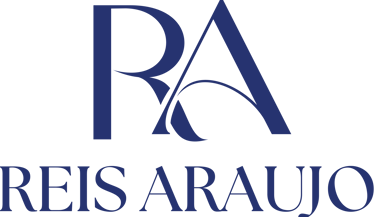Key Aspects of the Brazilian Trademark System
Learn key aspects of the Brazilian trademark system, including the first-to-file rule, opposition deadlines, and non-use cancellation. Essential guide for foreign attorneys handling trademark registration in Brazil.
4/3/20252 min read


Understanding the Brazilian Trademark Registration System
The Brazilian trademark system has specific characteristics that distinguish it from other jurisdictions, making it essential for foreign attorneys to be aware of these peculiarities. While the overall framework aligns with international standards, aspects such as the requirement for a local attorney, strict deadlines for opposition can significantly impact trademark strategies. Understanding these nuances ensures better guidance for clients looking to secure their rights in Brazil.
1. Requirement of a Local Attorney
Unlike some jurisdictions where foreign applicants can file trademarks directly, Brazil requires a local attorney or a legally authorized representative to act on behalf of foreign applicants. This is mandated by the Brazilian National Institute of Industrial Property (INPI) and ensures compliance with procedural rules and deadlines. This is also applied for trademarks filed through Madrid Protocol system.
2. First-to-File System
Brazil follows a strict first-to-file rule, meaning that the first applicant to submit a trademark application will have priority over others, regardless of prior use. Unlike common law countries where prior use can establish rights, in Brazil, unregistered trademarks generally have no legal standing. This makes early filing critical for businesses looking to secure their brand.
3. Opposition Period and Procedural Deadlines
Once a trademark application is published in the INPI’s Official Gazette, third parties have 60 days to file an opposition. If an opposition is lodged, the applicant has an additional 60 days to present a counterstatement. These strict deadlines must be closely monitored, as failing to respond in time may lead to the rejection of an application.
4. Trademark Use and Risk of Non-Use Cancellation
Brazilian trademark law allows for cancellation due to non-use. If a registered trademark is not used for five consecutive years after registration, a third party can file a request for cancellation due to lack of use. However, use must be demonstrated within Brazilian territory, and token use is generally not sufficient to maintain rights.
5. Classification and Multi-Class System
Brazil applies the Nice Classification for trademarks but currently does not offer multi-class applications when filing a trademark directly at INPI.
6. Protection for Well-Known and High-Renown Trademarks
Brazil provides special protection for well-known trademarks under the Paris Convention and for high-renown trademarks, which enjoy broader protection across all classes. However, obtaining high-renown status requires a separate recognition process before the INPI, which demands substantial evidence of the brand’s notoriety.
Conclusion
Understanding these key aspects of the Brazilian trademark system is crucial for foreign attorneys advising clients on brand protection in the country. Given the local requirements, opposition deadlines, and risks of non-use cancellation, partnering with an experienced Brazilian IP law firm can streamline the registration process and safeguard trademark rights.
Need Assistance with Trademark Registration in Brazil?
Our team specializes in assisting foreign attorneys and their clients with trademark prosecution, enforcement, and portfolio management in Brazil. Contact us to ensure a seamless and compliant trademark registration strategy.


